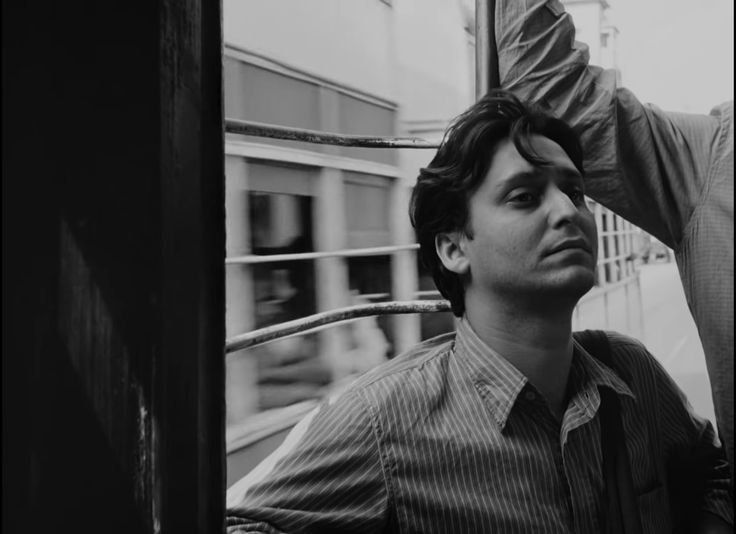9 MALE CHARACTERS THAT HAVE CHANGED WORLD CINEMA
- Humans of Cinema
- Feb 1, 2024
- 3 min read
By Harshit and Ahona
TRAVIS BICKLE
Written by Paul Schrader and Directed by Martin Scorsese, appearing in The Taxi Driver

Most characters that suffer from a kind of disenchantment with the world, a fatigue that comes from hyper-modernity, an internal aggression from a deep loneliness, are directly or indirectly influenced by this character. Bickle shows you how an inner violence is turned outwards, like the darkness inside of you can bleed out of the fractures within your psyche, effectively structuring the antihero.
ANTOINE DOINEL
Created by Francois Truffaut, recurring through five films - The 400 Blows, Antoine and Colette, Stolen Kisses, Bed and Board, Love on the Run

It is not enough to say that this character defined the French New Wave, or that he defined the way auteurs write their alter egos into their cinema, or that he defined the way character continuity is structured. Effectively, Antoine Doinel defined the way cinema looks at masculinity, coming-of-age, and the process of growing up. Doinel is at the very centre of modern cinema's structure.
APU (APURBA KUMAR ROY)
Written by Bibhutibhushan Bandopadhyay and Adapted by Satyajit Ray, recurring through three films Panchali, Aparajito, Apur Sansar Pather

The protagonist of one of the world's greatest künstlerromans (a künstlerroman is a story that follows the life of an artist, from childhood to maturity), Apurba Kumar Roy has effectively changed the way cinema represents the modern man and his relationship with the world. He has also defined the way cinema looks at the post-colonial subject, their grief, their artistry and their identity.
VITO CORLEONE
Written by Mario Puzo and Adapted by Francis Ford Coppola, appearing in The Godfather Trilogy

Masculinity, the mafia, inherited empires, the very idea of power vested in a man's personal code of ethics - The Godfather is what crystallised all of those in cinematic frames. Of course there are characters that came before him, with vestiges of one or more of those ideas, but none left such significant impact on the gangster genre itself, while also reframing masculine power.
THE TRAMP
Created by Charlie Chaplin, appearing through his filmography

Cinema's first and most iconic vagrant (vagrant refers to a person who has no particular settlement, who moves across without any set purpose), The Tramp defined not just the image of comedy, but also the way the camera frames a character's movement. In India alone, the Tramp has inspired generations of actors, from Raj Kapoor's Awara to Ranbir Kapoor's Barfi.
PATRICK BATEMAN
Written by Bret Easton Ellis and Adapted by Mary Harron, appearing in American Psycho

No other character has had this degree of narcissism and sadism written into them with such terrifying ease. Bateman is the face of the corporate psychopath, and his creation went on to influence the way cinema looks at the violence within masculinity, as well as the failure of it. Bateman embodies both the power and failure of an internalised need for violence.
TYLER DURDEN
Written by Chuck Palahnuik and Adapted by David Fincher, appearing as the Narrator's alter ego in Fight Club

One of the most iconic instances of a fictional character imagined by a fictional character, Tyler Durden defined the way we look at both masculinity and chaos. This is the most substantial character to use a kind of structured chaos to combat the deep disillusionment that an entire generation went through. Durden has also significantly changed the way cinema understands fragmented personalities.
RICK DECKARD
Created by Philip K. Dick, adapted by Ridley Scott, Hampton Fancher, David Peoples, appearing in Blade Runner films

I couldn't find any academic references for this so this is strictly my opinion, but based on my own understanding, most modern no-nonsense stoic heroes played by actors like Ryan Gosling & Jake Gyllenhaal can be traced back to Harisson Ford's Rick Deckard. Deckard wasn't the archetypical alpha-male detective typical of most male protagonists of that era. He represented a novel idea of masculinity, exuding his fears & insecurities with a strange, cathartic, calming kind of quietness.
TONY MONTANA
Created by Armitage Trail as Tony Camonte, adapted by Brian de Palma & Oliver Stone, appearing in Scarface

Scarface marks the defining moment for anti-heroes in cinema. Montana was an anti-hero that polarised the audience, as some of them found themselves rooting for him in his rags-to-riches story, while others absolutely despised him for his descent into violent hysteria. Over the years, the character's tragic journey has served as the quintessential critique of capitalism & the "American Dream", in turn inspiring similar stories around the world over the years, visible in India in films like Vaastav, Bombay Velvet, Agneepath & even shows like Farzi.



Comments